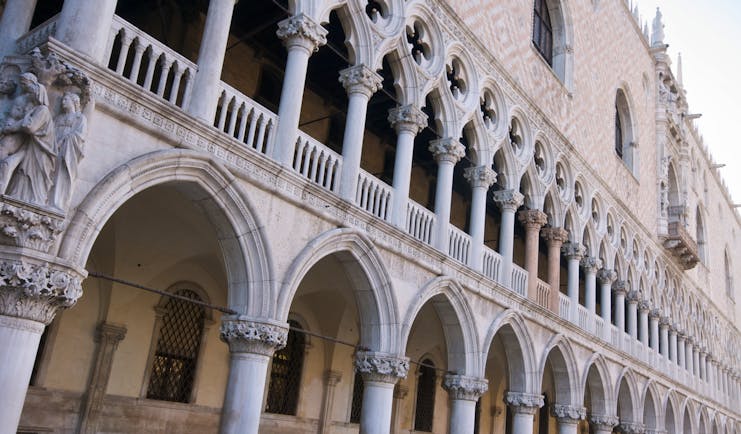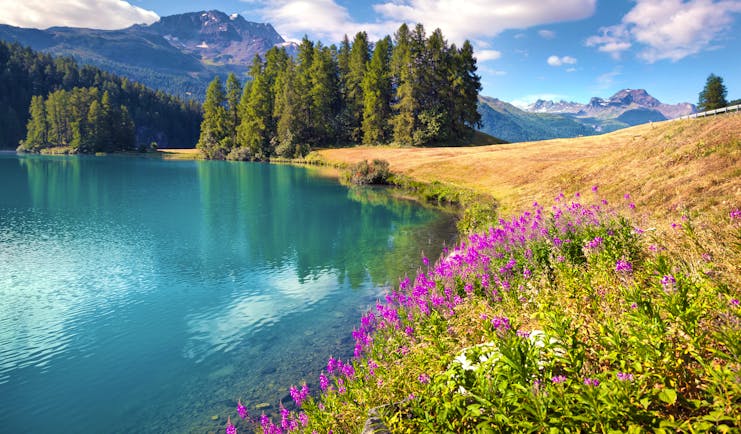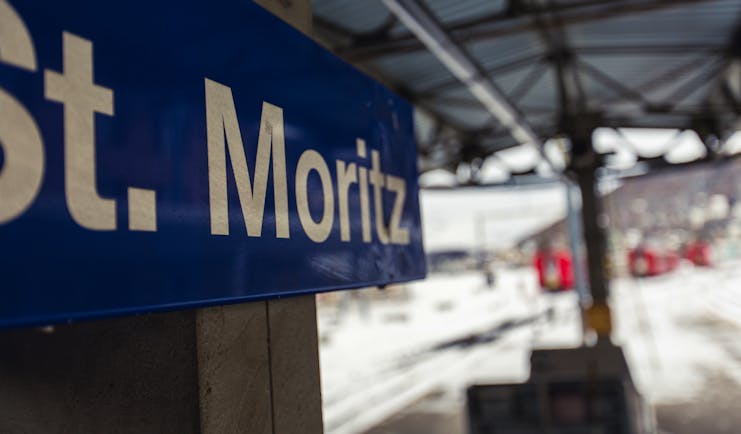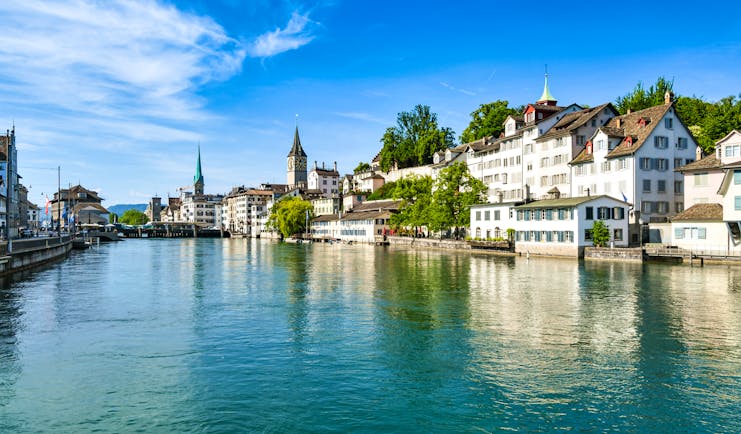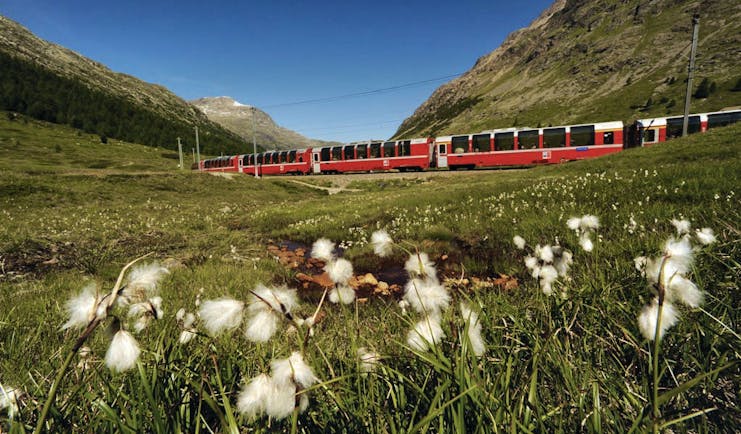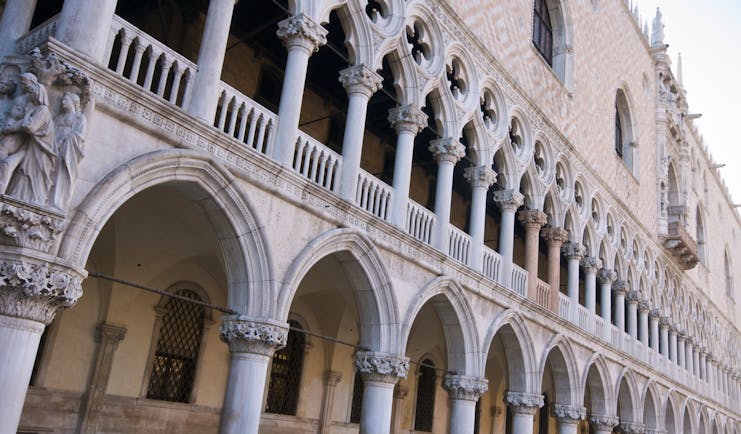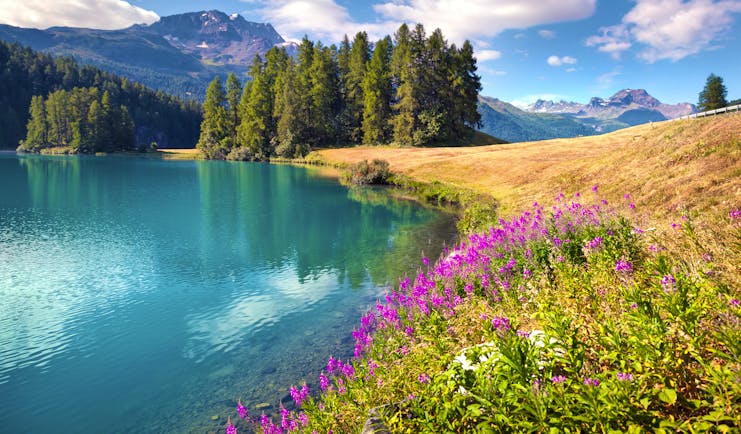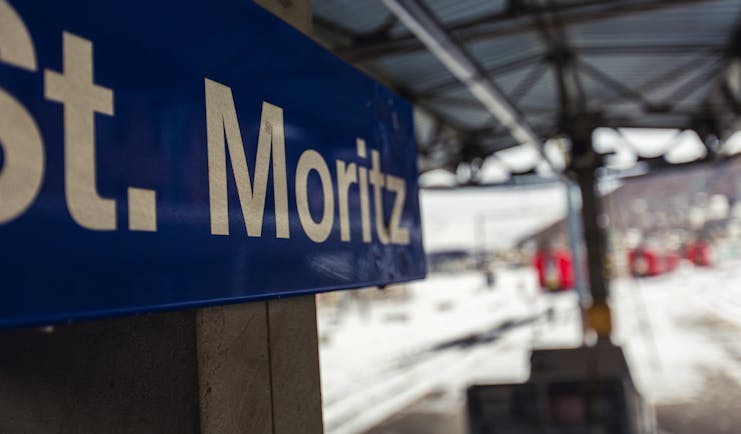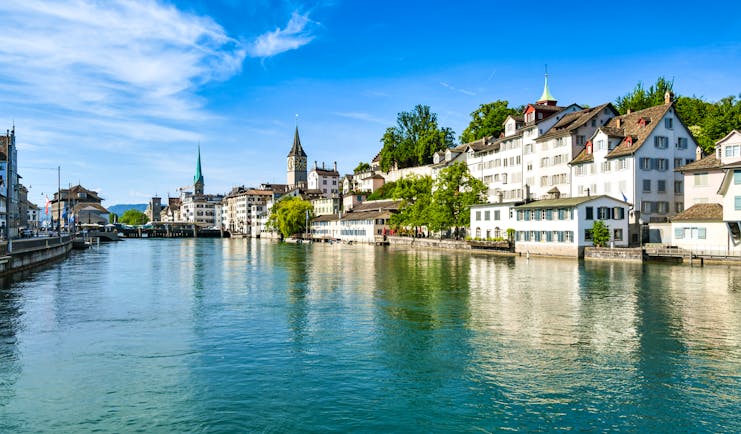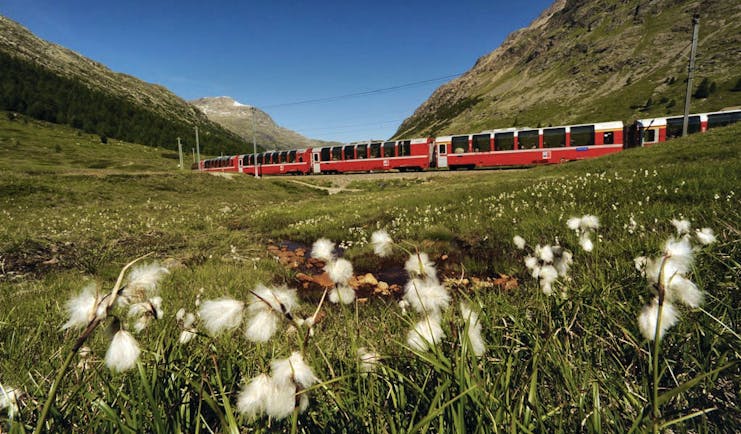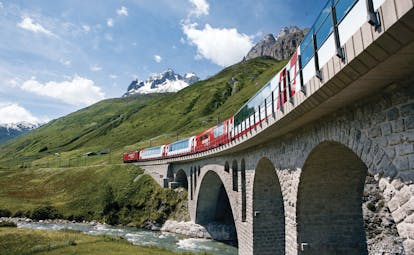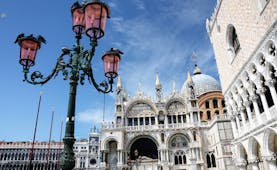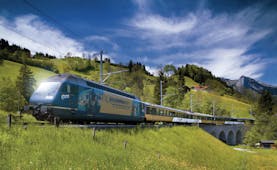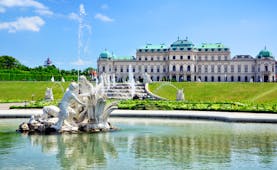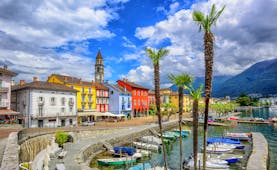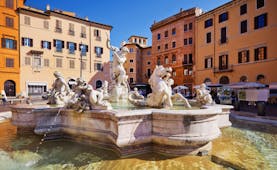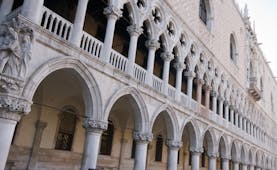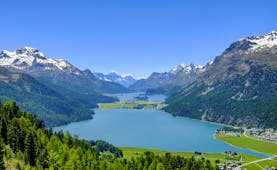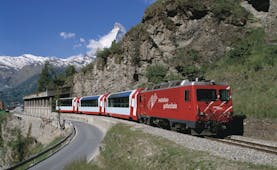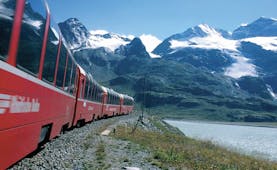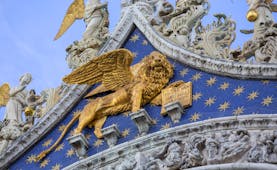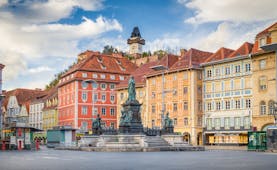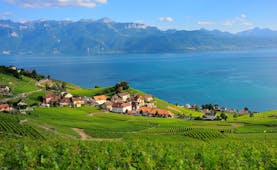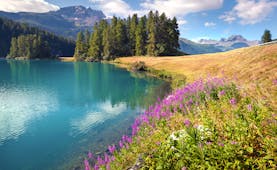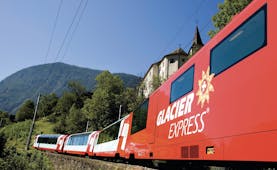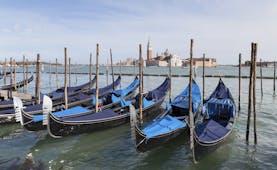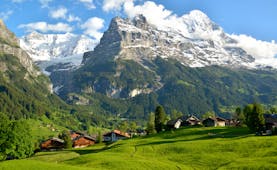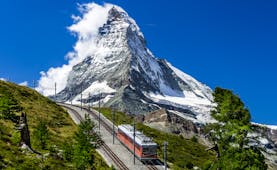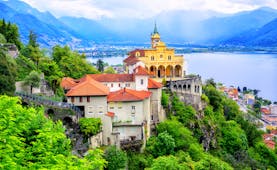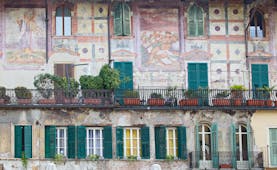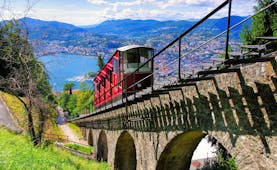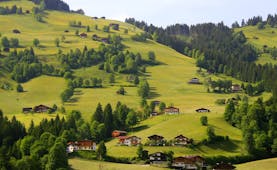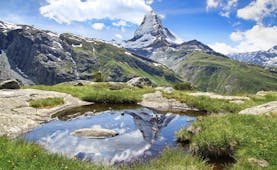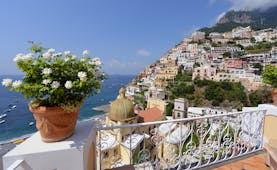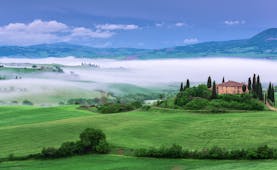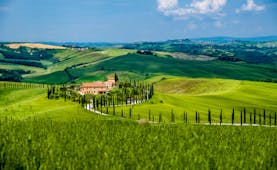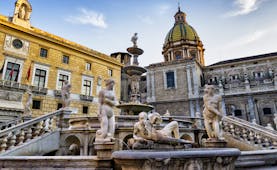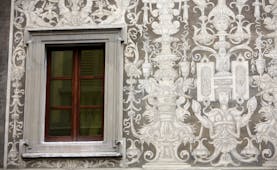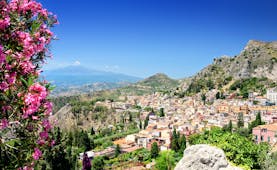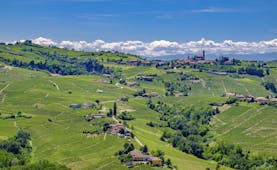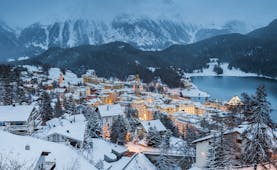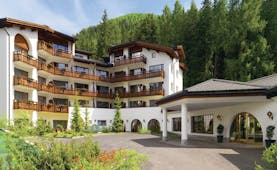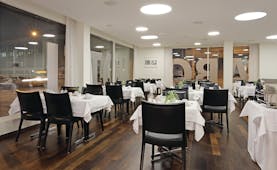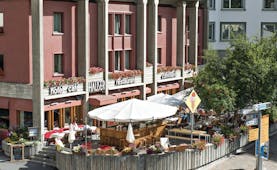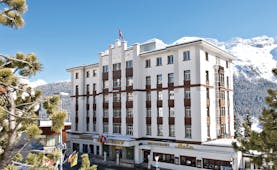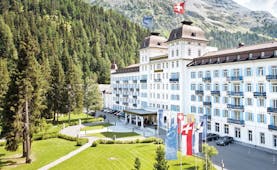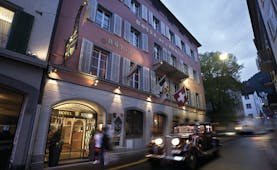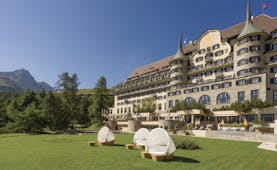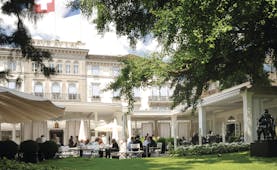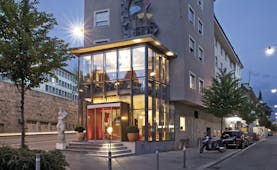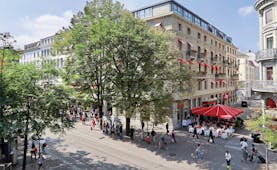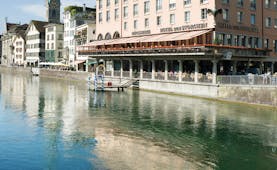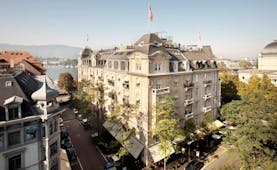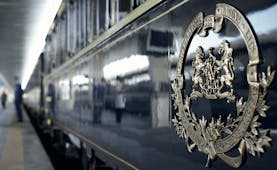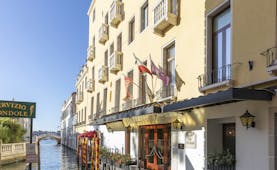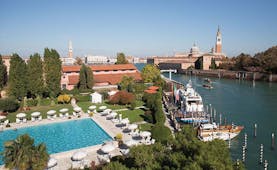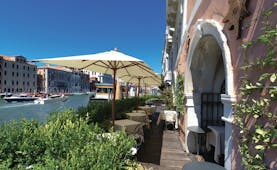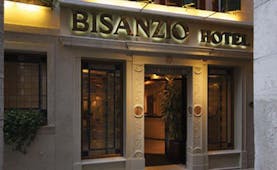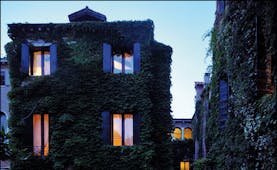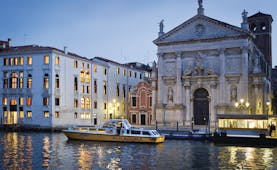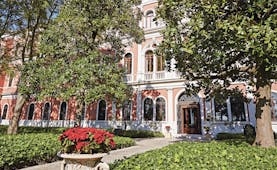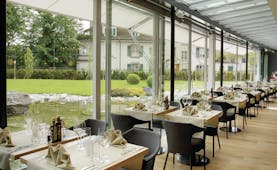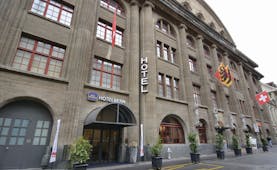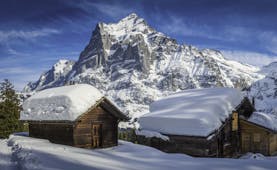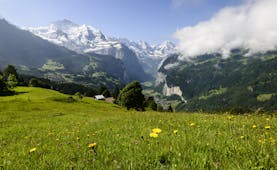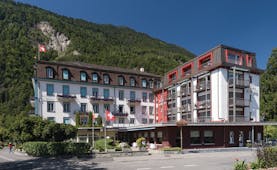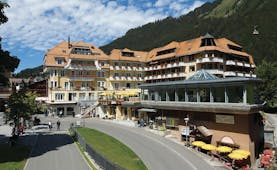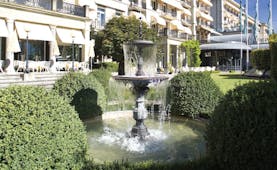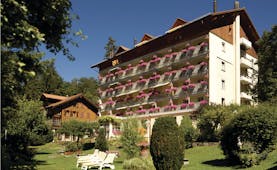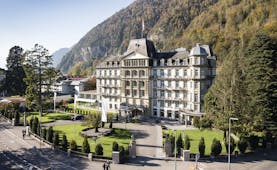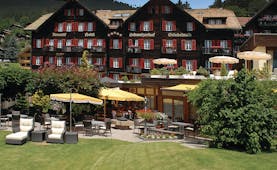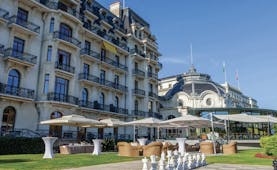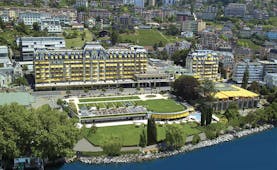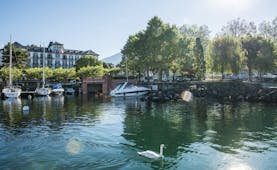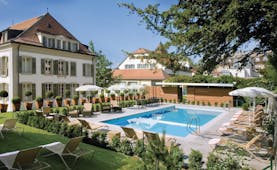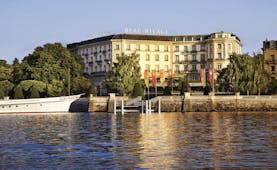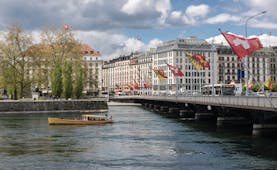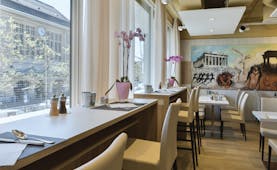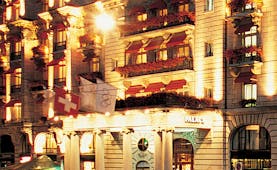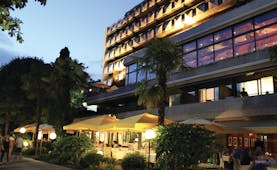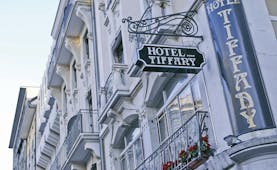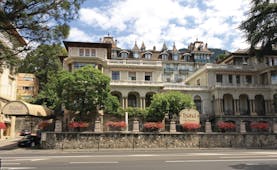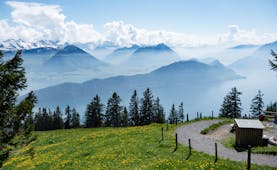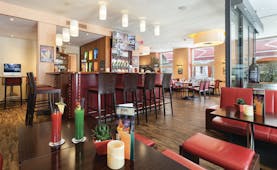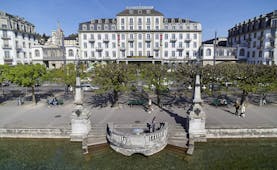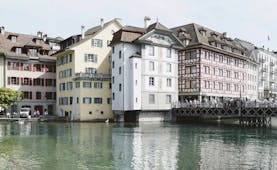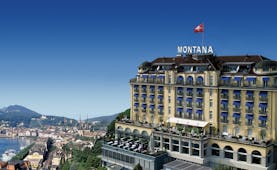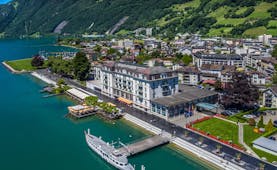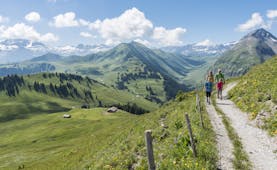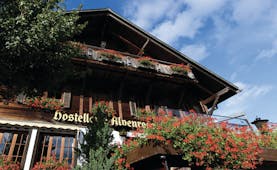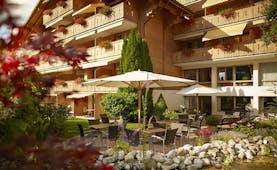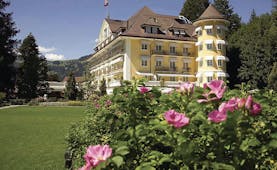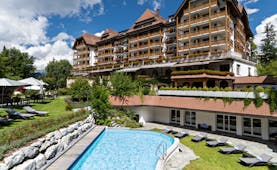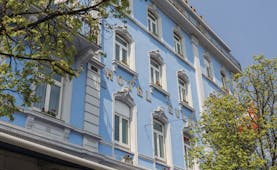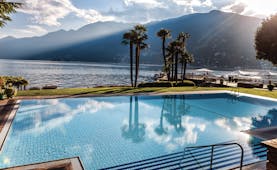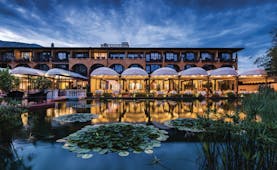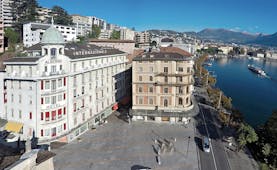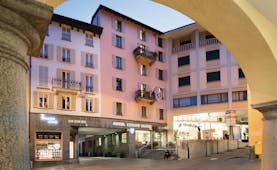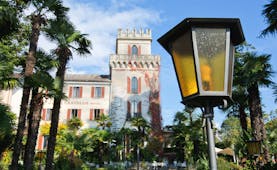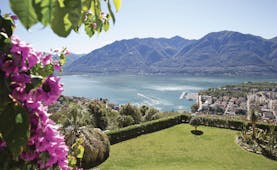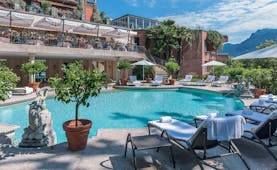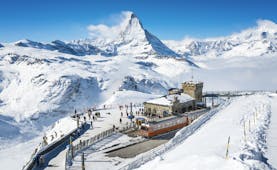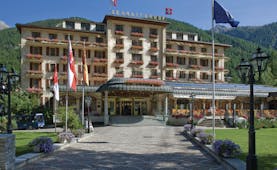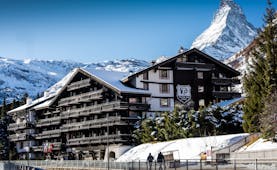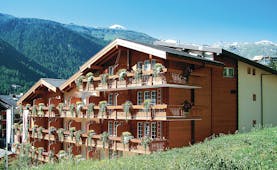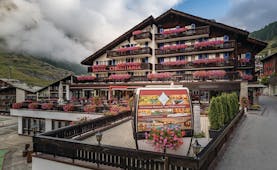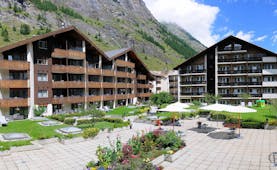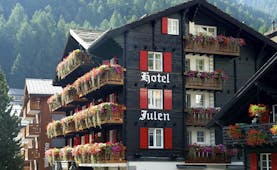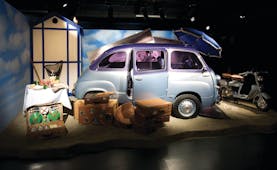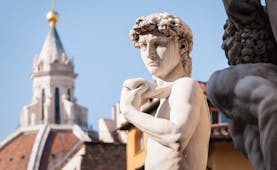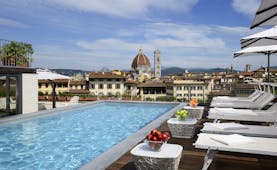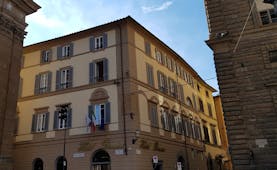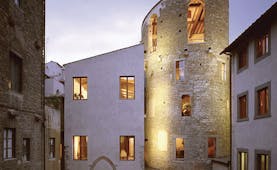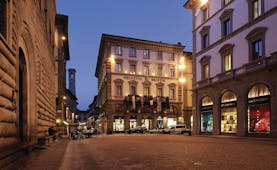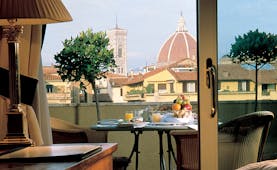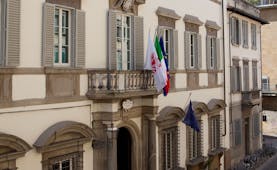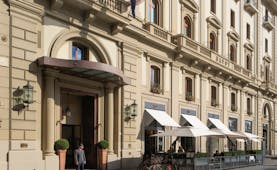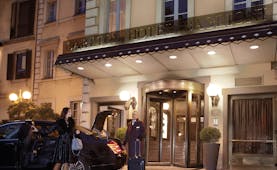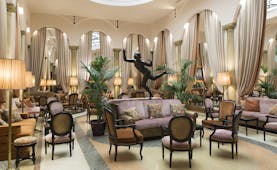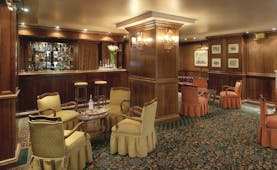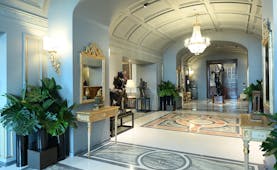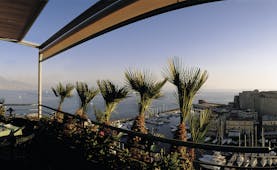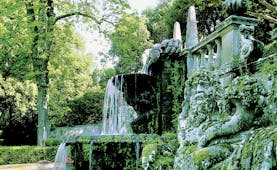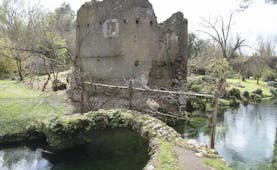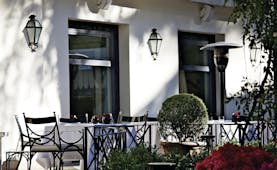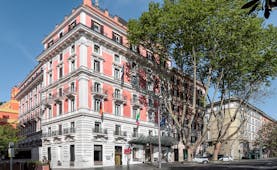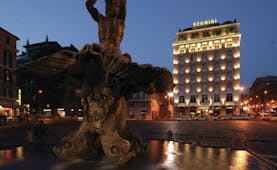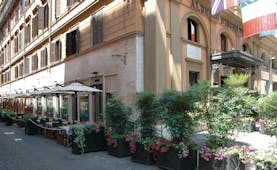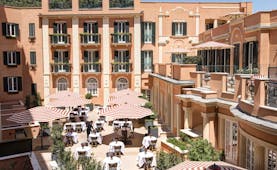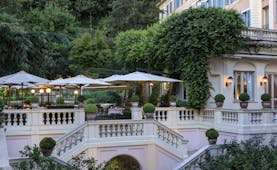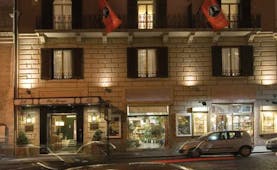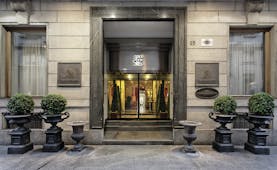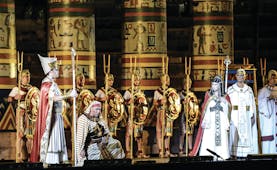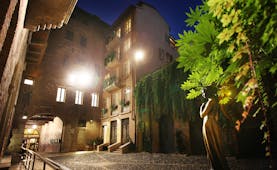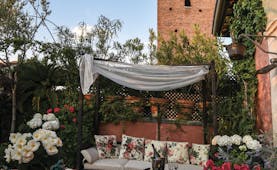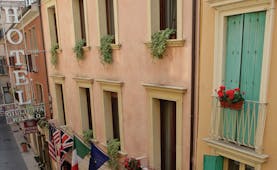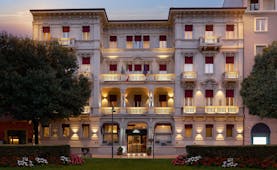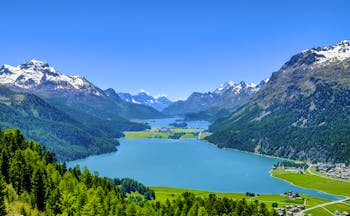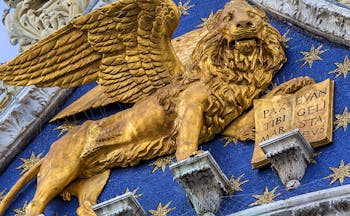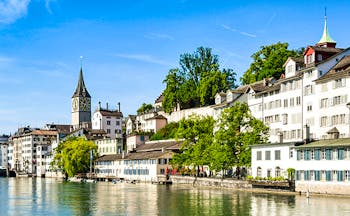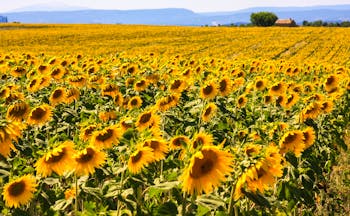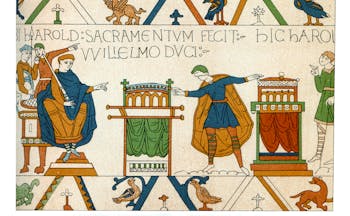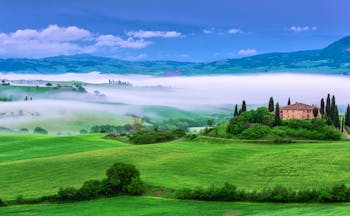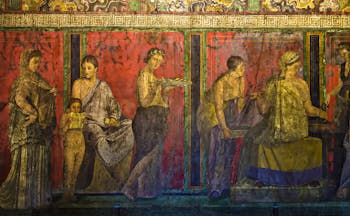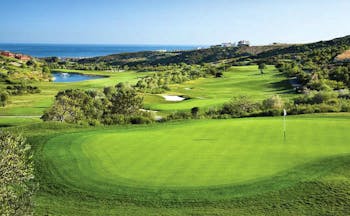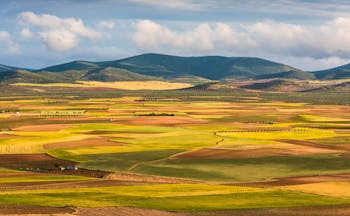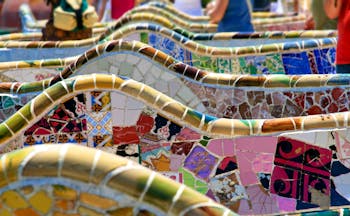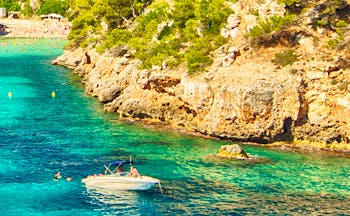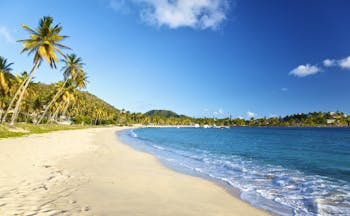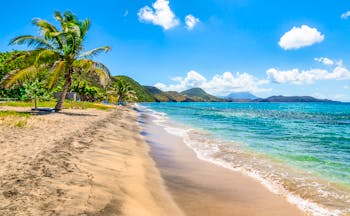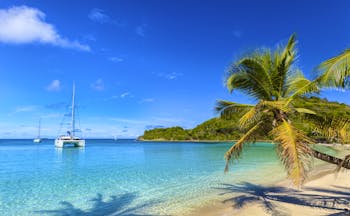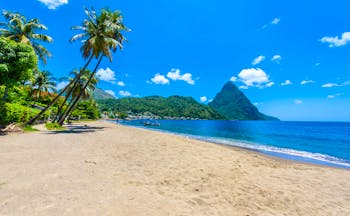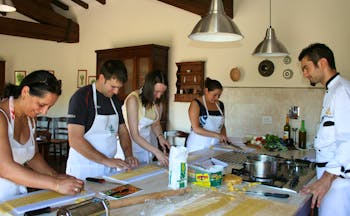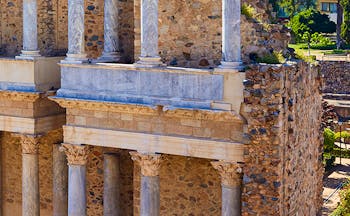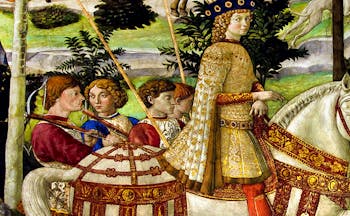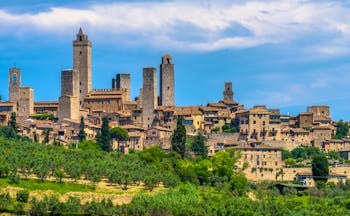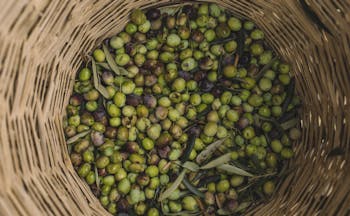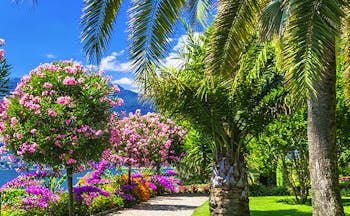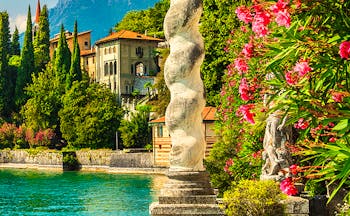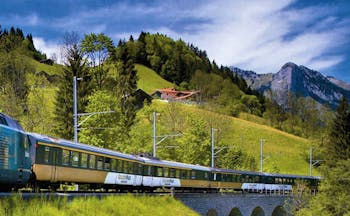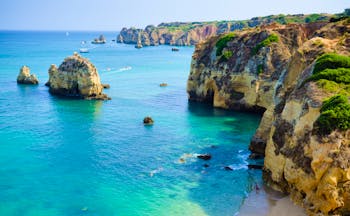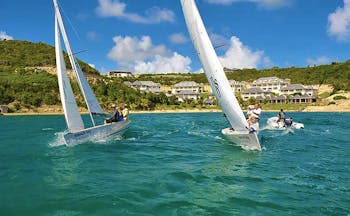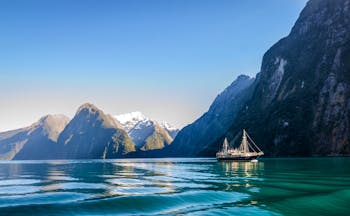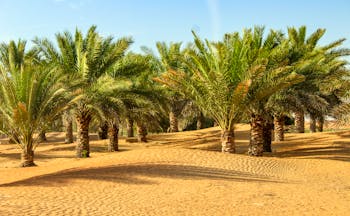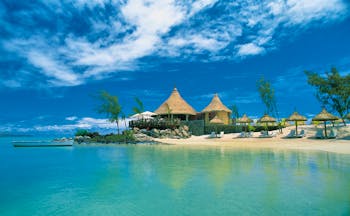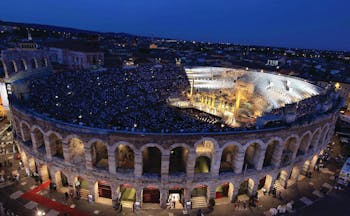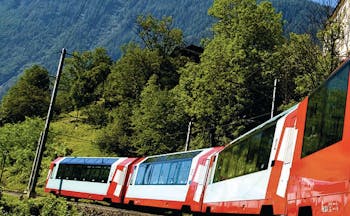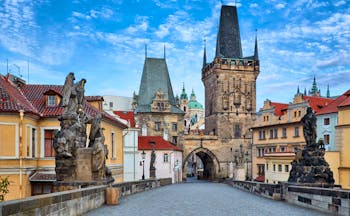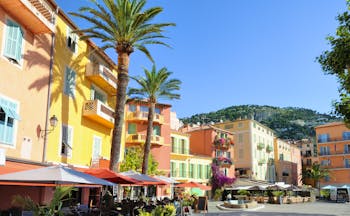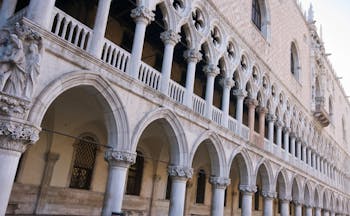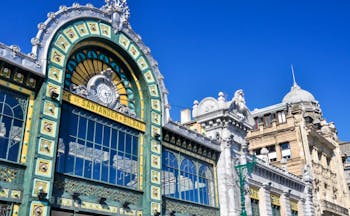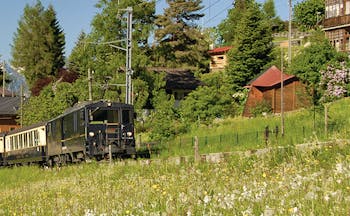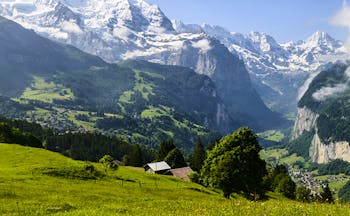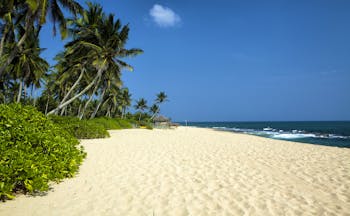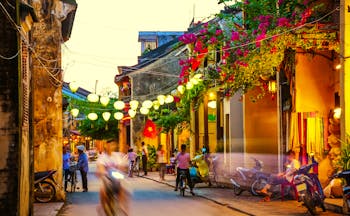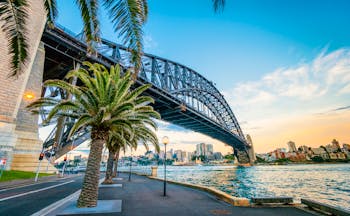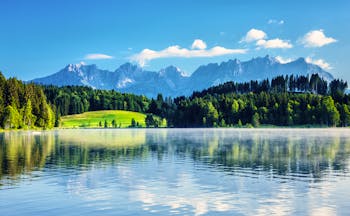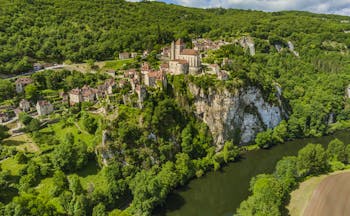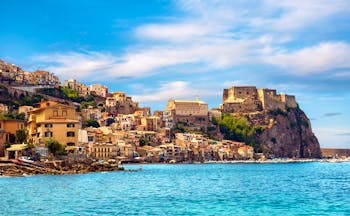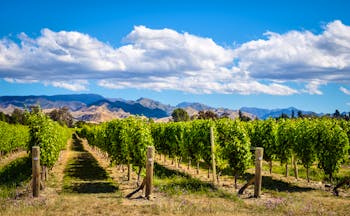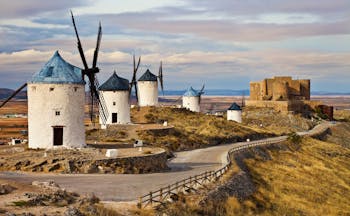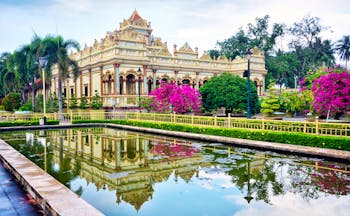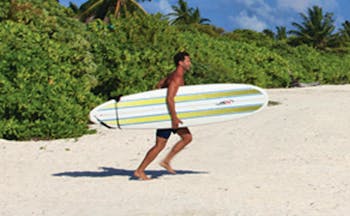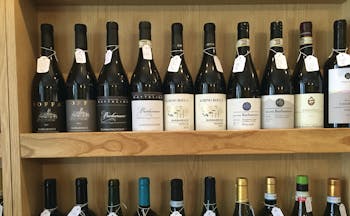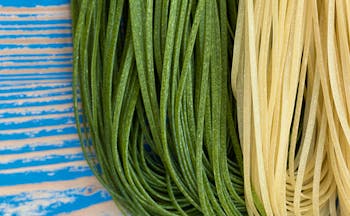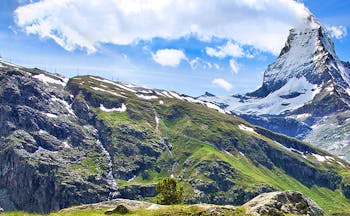Luxury Italy tailor-made rail holiday to Venice through the Alps by Bernina Express train
This 7-night rail holiday to Venice but also with lakes and mountains stops on the way, with an overnight in Zurich, and then two nights in the Engadine resort of St Moritz. Your holiday by train starts with the Eurostar to Paris where you change to a high-speed TGV train to Zurich. Following a night in Zurich, you travel to St Moritz where you break the journey for two nights to explore the mountain scenery. The Bernina Express railway then takes you through the very heart of the Alps. The journey to Tirano takes about two and a half hours and is truly spectacular. The train travels mostly at low speeds giving time to take in the snow-capped mountains, pine forests, pretty villages and mountain lakes. The line crosses 196 bridges and 55 tunnels. At its highest point at Ospizio Bernina, the route reaches 2,253 metres before dropping 1,800 metres down to Tirano on the Italian border. In Tirano there is time for a stroll before taking a local train to Milan. This is an attractive route, at first passing vineyards perched precariously on hillside terraces, and then travelling along the eastern edge of Lake Como. From Milan, a high-speed train takes you on your final leg of the journey to Venice. We include a stay of three nights in one of our luxury hotels in Venice to give you time to explore this fascinating city with its bobbing gondolas, Byzantine and Gothic architectural gems and interesting islands.There are several other possible routes to return from Venice to London by train, in addition to perhaps by flying back. One option is to take a morning train from Venice to Milan or Turin, where you stop for one night, before continuing by day-time train to Paris and on to London. Another option is to return from Venice via Milan to Lausanne or Lucerne in Switzerland, and to experience a different region from that visited on the outbound train journey.
Highlights
Zurich • St Moritz • Bernina Express train journey • Venice • Visit the islands of Murano and Burano • Visit the Guggenheim • Eurostar London to Paris return
Day by day
Your rail holiday to Venice and the Bernina Express starts with a journey by Eurostar from London St Pancras to Paris Nord station, leaving at about 7.00 am. On arrival in Paris you change stations to Gare de Lyon where you may be able to have lunch at the famous Train Bleu restaurant. From Paris Lyon, the high-speed TGV service takes you across France and into Switzerland arriving into Zurich at about 4.30pm. Spend one night in Zurich at a suggested hotel not far from the lake and the old town.
Spend this morning sightseeing in this historic and enchanting city, perhaps stopping at the Grossmunster church and climbing the Karlsturm tower. Leave Zurich at lunchtime to travel to St Moritz, where you arrive at about 4pm. The first leg of the journey by train takes you along the edges of Lakes Zurich and Walensee to Chur. In Chur you change trains and continue along the first part of the Bernina Railway higher into the mountains of the Grisons to the resort town of St Moritz. Spend two nights in St Moritz.
You have a full day at leisure to enjoy St Moritz. At 1856m above sea level, visitors are welcomed by stunning views across the lakes of the Upper Engadine Valley, and the refreshing Alpine climate. There are several excellent walking trails in the area, or for an easier option there are cable cars which can take you up the mountain to enjoy the spectacular Alpine views. Navigate the local peaks by the railway, reaching the Piz Corvatsch, Chantarella, and Corviglia, where a cable car takes you up to Suvretta’s most famous viewing point. In the summer you might like to enjoy the water sports Lake Sils and Lake St Moritz, or the windy Lake Silvaplana.
You board the famous Bernina Express in St Moritz at about10.30 hrs and take this stunning scenic route all the way to Tirano in Italy. The journey takes you along the highest railway across the Alps, reaching an impressive 2,253m above sea level, before dropping down through a varied terrain of orchards, chestnut trees and vineyards on the way to Tirano. The track crosses numerous viaducts and tunnels and is a truly beautiful trip during the whole four hours. On arrival in Tirano in Italy, there is time for a brief stroll before, at about 15.00 hrs, you continue by local Italian train to Milan. Following a simple change in Milan, a high-speed train will whisk you the remainder of the way to Venice where you arrive at about 20.30 hrs. At Venice Santa Lucia station you are met by private water taxi an taken to your hotel. You spend three nights in Venice.
You have two full days in Venice. More than a city, Venice “La Serenissima” is an enchantress. Take the time to discover her winding streets, canals, quiet squares and lively waterfronts. To make the most of your time in Venice, it’s worth dividing the city into areas or themes. The obvious place to start is at St Mark’s Square, best appreciated whilst sipping a Venetian coffee at Florian’s. St Mark’s Basilica, the Doge’s Palace and the Campanile can all be visited. The magnificent churches of Venice are worth seeking out: Santa Maria della Salute, Ss Giovanni e Paolo, and Santa Maria Gloriosa dei Frari (with works by Titian), Santa Maria dei Miracoli and the Gesuiti. The Jewish quarter can be found just off the Strada Nova to the north of the city and gives you a rare insight into the history of the Jewish community in Venice. There is a clutch of art galleries to be enjoyed including the Ca’ Pesaro, the Ca’ d’Oro, the Galleria dell’Accademia, the Scuola di San Rocco and for modern art, the Peggy Guggenheim Collection. The streets of Venice also contain a treasure trove of tiny artisan shops selling glassware, masks, lace and silk, and shoes. To absorb the magic of Venice from the water, treat yourself to a ride in a gondola. Across the lagoon, and reached by vaporetto, are the islands of Burano, home to lace-making and fishermen, and Murano, where master craftsmen offer demonstrations of glass-making before you enter their shops.
Your return journey starts today with a train from Venice to Milan and then on to Lausanne on Lake Geneva in the French-speaking part of Switzerland. An 11.48 train from Venice gets you into Lausanne at 19.10, via Milan and Brig with plenty of time to change trains.
The final day of your holiday is an easy journey of about 4 hours from Lausanne direct to Paris Gare de Lyon. You can arrive by 14.00 hrs with a 9.45 departure from Lausanne, meaning an arrival into London on the Eurostar by about 6pm.
We felt the views on the Bernina Express were the highlight of the entire trip. We will be sure to use your services again in the future.Mr C, May 2019
Holiday price guide Price from £2,390 per person based on two people sharing a double room in 4-star hotels and from £3,150 in some 5-star hotels, including second class rail travel. Supplement £570 per person for first class rail travel.
Holiday Code ITBR09
Call us on 01392 441245
Luxury Italy tailor-made rail holiday to Venice through the Alps by Bernina Express train
Your rail holiday to Venice and the Bernina Express starts with a journey by Eurostar from London St Pancras to Paris Nord station, leaving at about 7.00 am. On arrival in Paris you change stations to Gare de Lyon where you may be able to have lunch at the famous Train Bleu restaurant. From Paris Lyon, the high-speed TGV service takes you across France and into Switzerland arriving into Zurich at about 4.30pm. Spend one night in Zurich at a suggested hotel not far from the lake and the old town.
Spend this morning sightseeing in this historic and enchanting city, perhaps stopping at the Grossmunster church and climbing the Karlsturm tower. Leave Zurich at lunchtime to travel to St Moritz, where you arrive at about 4pm. The first leg of the journey by train takes you along the edges of Lakes Zurich and Walensee to Chur. In Chur you change trains and continue along the first part of the Bernina Railway higher into the mountains of the Grisons to the resort town of St Moritz. Spend two nights in St Moritz.
You have a full day at leisure to enjoy St Moritz. At 1856m above sea level, visitors are welcomed by stunning views across the lakes of the Upper Engadine Valley, and the refreshing Alpine climate. There are several excellent walking trails in the area, or for an easier option there are cable cars which can take you up the mountain to enjoy the spectacular Alpine views. Navigate the local peaks by the railway, reaching the Piz Corvatsch, Chantarella, and Corviglia, where a cable car takes you up to Suvretta’s most famous viewing point. In the summer you might like to enjoy the water sports Lake Sils and Lake St Moritz, or the windy Lake Silvaplana.
You board the famous Bernina Express in St Moritz at about10.30 hrs and take this stunning scenic route all the way to Tirano in Italy. The journey takes you along the highest railway across the Alps, reaching an impressive 2,253m above sea level, before dropping down through a varied terrain of orchards, chestnut trees and vineyards on the way to Tirano. The track crosses numerous viaducts and tunnels and is a truly beautiful trip during the whole four hours. On arrival in Tirano in Italy, there is time for a brief stroll before, at about 15.00 hrs, you continue by local Italian train to Milan. Following a simple change in Milan, a high-speed train will whisk you the remainder of the way to Venice where you arrive at about 20.30 hrs. At Venice Santa Lucia station you are met by private water taxi an taken to your hotel. You spend three nights in Venice.
You have two full days in Venice. More than a city, Venice “La Serenissima” is an enchantress. Take the time to discover her winding streets, canals, quiet squares and lively waterfronts. To make the most of your time in Venice, it’s worth dividing the city into areas or themes. The obvious place to start is at St Mark’s Square, best appreciated whilst sipping a Venetian coffee at Florian’s. St Mark’s Basilica, the Doge’s Palace and the Campanile can all be visited. The magnificent churches of Venice are worth seeking out: Santa Maria della Salute, Ss Giovanni e Paolo, and Santa Maria Gloriosa dei Frari (with works by Titian), Santa Maria dei Miracoli and the Gesuiti. The Jewish quarter can be found just off the Strada Nova to the north of the city and gives you a rare insight into the history of the Jewish community in Venice. There is a clutch of art galleries to be enjoyed including the Ca’ Pesaro, the Ca’ d’Oro, the Galleria dell’Accademia, the Scuola di San Rocco and for modern art, the Peggy Guggenheim Collection. The streets of Venice also contain a treasure trove of tiny artisan shops selling glassware, masks, lace and silk, and shoes. To absorb the magic of Venice from the water, treat yourself to a ride in a gondola. Across the lagoon, and reached by vaporetto, are the islands of Burano, home to lace-making and fishermen, and Murano, where master craftsmen offer demonstrations of glass-making before you enter their shops.
Your return journey starts today with a train from Venice to Milan and then on to Lausanne on Lake Geneva in the French-speaking part of Switzerland. An 11.48 train from Venice gets you into Lausanne at 19.10, via Milan and Brig with plenty of time to change trains.
The final day of your holiday is an easy journey of about 4 hours from Lausanne direct to Paris Gare de Lyon. You can arrive by 14.00 hrs with a 9.45 departure from Lausanne, meaning an arrival into London on the Eurostar by about 6pm.
We felt the views on the Bernina Express were the highlight of the entire trip. We will be sure to use your services again in the future.Mr C, May 2019
Holiday price guide Price from £2,390 per person based on two people sharing a double room in 4-star hotels and from £3,150 in some 5-star hotels, including second class rail travel. Supplement £570 per person for first class rail travel.
Holiday Code ITBR09
Our prices include
● Second-class travel on all trains, with standard class on Eurostar (first and standard premier can be booked at a supplement)
● Journey on the Bernina Express from St Moritz to Tirano, second-class
● Private return water taxi transfers from Venice Santa Lucia station to the hotel
● Hotel transfer in St Moritz
● 1 night’s bed and breakfast in a Classic room at the Hotel St Gotthard in Zurich
● 2 nights’ bed and breakfast in a Classic double room at the 4-star Hotel Schweizerhof or a Classic room at the 5-star Grand Hotel Kempinski in St Moritz
● 3 nights’ bed and breakfast in a Classic room at the 4-star Hotel Bisanzio or a Classic room at the 5-star Ca'Sagredo in Venice
● 1 night’s bed and breakfast in a Classic room at the Hotel Angleterre et Residence in Lausanne
● Concierge service and Expressions Holidays regional helpful hints
Our prices do not include
● Early check-in or late check-out at any hotels (although we can arrange this on request at additional cost)
● Any other services not mentioned above, such as transfers and meals except breakfast at hotels
● Personal holiday insurance. This is essential and cover should be in place from when you book the holiday.
● Local tourist tax, usually between Euros 1 and 3 per person per night, and payable locally to the hotel
● Transfers in Paris or Zurich
Call us on 01392 441245
Luxury Italy tailor-made rail holiday to Venice through the Alps by Bernina Express train
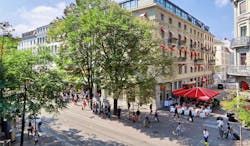
Hotel St Gotthard is a sophisticated 4-star hotel in an excellent central location. Haute cuisine and stylish, comfortable accommodation make this an excellent spot to recuperate after enjoying the cultural delights of Zurich.
Classic room
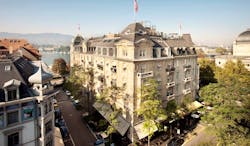
The Romantik Hotel Europe in Zurich is a charming, boutique, family-run hotel with 39 rooms just two minutes’ walk from the shores of Lake Zurich and by the Opera House.
Classic room
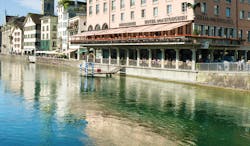
Hotel Storchen is an elegant and refined 5-star boutique hotel in a beautiful waterfront location. Delicious cuisine and luxurious accommodation make this an excellent spot to recuperate after enjoying the cultural and historical delights of Zurich.
Classic room
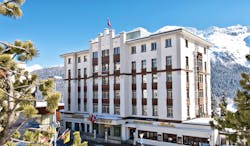
Hotel Schweizerhof St Moritz is a 4-star boutique hotel in a beautiful location on the mountain slopes, and is an excellent base for enjoying the scenery of Grisons and the Engadine. It offers stunning views, gourmet dining and exceptional service.
Double room corviglia
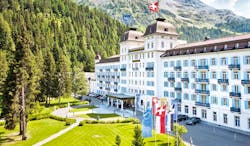
Kempinski Grand Hotel des Bains is a 5-star luxury spa hotel in a beautiful Alpine location. Offering fine dining, extensive spa facilities and impeccably grand accommodation, it is an excellent spot to recuperate after a day on the slopes.
Classic double room
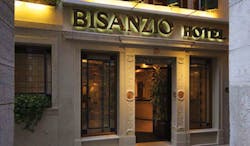
Hotel Bisanzio is an elegant 4-star hotel, which exudes historical charm, in an excellent position for exploring the main sights of Venice.
Classic room
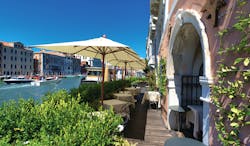
Ca'Sagredo is a grand 5-star palazzo hotel overlooking Venice's Grand Canal. The delicious cuisine, art gallery and museum afford guests a unique city stay that reflects the culture of the surrounding city.
Classic room
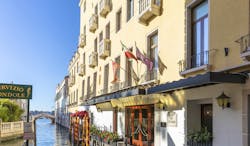
Baglioni Hotel Luna is an award-winning, 5-star boutique hotel in an outstandingly convenient yet charming location. The award-winning restaurant and opulent Venetian style afford guests a luxurious retreat after a day soaking up the cultural and historical delights of Venice.
Classic room
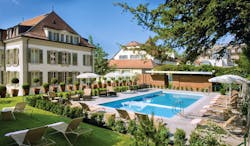
Hotel Angleterre et Résidence is a charming, traditional, Swiss-style, 4-star hotel in a prime location. Delicious cuisine, exceptional service and immaculate grounds offer guests a truly relaxing and indulgent experience.
Classic room
We felt the views on the Bernina Express were the highlight of the entire trip. We will be sure to use your services again in the future.Mr C, May 2019
Holiday price guide Price from £2,390 per person based on two people sharing a double room in 4-star hotels and from £3,150 in some 5-star hotels, including second class rail travel. Supplement £570 per person for first class rail travel.
Holiday Code ITBR09
Call us on 01392 441245
Luxury Italy tailor-made rail holiday to Venice through the Alps by Bernina Express train
About Grisons and the Engadine
Dotted with National Parks, Grisons and the Engadine are best known for the dramatic Alpine scenery and the major winter sports resorts; yet, in the spring, summer, and autumn months, the region has far more to offer. Historic towns, scenic lakes and glaciers, and chic villages packed with gourmet restaurants and boutique shops come into their own in the sunshine. The Ela Park, through which the world-famous Glacier Express and Bernina Express run, stretches between Chur and St Moritz. Passing through here by car or rail will introduce you to miles-upon-miles of quintessentially Swiss landscape: lush, natural fields are interspersed with evergreen forests, clusters of rustic wooden houses, and jagged mountain peaks such as the Lenzerhorn, Piz Vadret, Piz Platta, as well as Piz Bernina in the distance. Visitors to this region in the summer have these sublime panoramas as their object. The Engadine is known for its sporting possibilities. Hiking and walking trails take you up to the most sought-after and secluded vantage points, and the extensive network of cycling paths offer endless destinations; one route even leads to Budapest.
Highlights of Grisons and the Engadine
Between the peaks, valleys, and lakes of Grisons and the Engadine, towns and villages with hidden cultural treasures abound. Some of the oldest settlements in Switzerland are located here, still with the same medieval atmosphere. One of the most iconic images associated with Grisons is Tarasp Castle, built in the 11th century, perched on its hundred-metre-high rock in the centre of its surrounding valley. To see more of traditional Engadine style, visit the ancient villages of Guarda, Ftan, and Sent. The village of Zernez is known as the ‘Gateway to the Swiss National Park,' which also extends south into Italy. The Inn Valley is the perfect place to admire your surroundings. 60km of hiking trails wind their way across the landscape between Maloja and Scuol, believed to be the most rewarding trails in Switzerland because of the high-altitude views. Between the months of May and September, the Inn Valley gorges are ideal for rafting, as their calm turquoise waters bustle white. The Bains Engadine in Scuol were the first Roman-Irish baths in Switzerland, now providing saunas and pools with a very impressive backdrop.
Cultural highlights of Grisons and the Engadine
The three main towns of interest are Chur, Davos, and St Moritz. Chur is the oldest city in Switzerland, affectionately named the ‘Alpine City.’ Twisting streets and historic buildings, restaurants, bars, museums, galleries, boutiques, and a pedestrianised Old Town mean the city is abounding in charming character. A farmer's market is held in the main square of the Old Town every Saturday morning between the months of May and October. High above the town stands the Bishop's Palace. Fortified walls surround the central courtyard, which holds the Cathedral of the Assumption, dating back over 800 years. Chur is also home to the region's three largest museums. Explore its history in the Rhaetian Museum, the works of prestigious local artists at the Museum of Fine Art, and the flora, wildlife, and geological history at the Graubunden Natural History Museum. The two most popular mountain peaks in the area around Chur are the Branbruesch and the Dreibundenstein, both accessible by cable car and hiking routes. Chur has the highest concentration of restaurants and bars in Switzerland, making it an excellent destination for gastronomists and those who enjoy sampling a range of delicacies in a new restaurant each night. The highest ‘town’ in the Alps, at 1560m above sea level, is Davos, another popular destination with winter sports enthusiasts. In the summer, however, the snow melts to reveal over 700km of hiking paths. These can be accessed via cable cars up to the Jakobshorn (2590m), the Weissflujoch (2844m), and the Rinerhorn (2490m). Horse-drawn carriages take you along the narrower valleys of Sertig, Dischma, and Fluela. At Davos Lake, visitors can take a refreshing swim or enjoy the sports available at the sailing and surfing area. Alternatively, visit the Zugenschlucht gorge to follow the geology trail, the rocky path of the river, or to visit the mining museum. For something even more unusual, spend an hour at the Monstein Brewery, the highest brewery in Europe, and the first in Switzerland to be opened for tastings and tours. St Moritz is perhaps the best-loved Alpine winter destination in Switzerland, and possibly Europe. At 1822m above sea level, visitors are welcomed first by views across the Upper Engadine Valley. The local peaks, including the Piz Corvatsch, Chantarella, and Corviglia can be reached via mountainside railway, and from Corviglia, you can take a cable car up to Suvretta's most famous viewing point. Though St Moritz is not a waterside village, the nearby Lake Sils and Lake Silvaplana are perfect for water sports, particularly the latter, which is known for being windy. The village of St Moritz itself is smattered with quaint cafes and stunning buildings with peaked roofs, and the central churches provide beautiful destinations after a morning of exploration on foot. Just outside St Moritz is Celerina, home to the Cresta Run, one of the area's most famous attributes. Celerina is also the first stop on the Glacier Express route from St Moritz to Zermatt: a journey of viaducts, steep inclines, spiralling declines, and some of Switzerland's most famous mountains.
Festivals in Grisons and the Engadine
In Switzerland there is only one nationally celebrated day, the Anniversary of the Founding of the Swiss Confederation on the 1st August, aside from Christmas, advent and New Year. Apart from these, festivals and holidays are determined by the canton and the town. The residents of Grisons see in the first day of March with Chalanda Marz, in which bells are rung to chase out the winter. In Disentis on July 11th, a religious procession takes place to honour Saint Placidus. In Pontresina, St Moritz, and across the canton, the BSI Engadine Festival brings the region to life with performances of classical music in August. The most unusual of the major festivals in Grisons and the Engadine may well be in Chur, at the Chur City Festival and Alpine Beard Festival in August. In the autumn, Chur Theatre performs a diverse international theatre and dance programme, and in August every two years open-air opera is performed at the Haldenstein Castle.
Gastronomy in Grisons and the Engadine
As Grisons is still comprised of three language areas (Italian, German, and Romansh), the cuisine remains eclectic and varied. Many ingredients, prominent in the Alpine terrain are recombined in new ways to create different, flavoursome dishes. Three popular dishes in particular are maluns, capuns, and pizokels. Maluns are made from boiled potatoes, which are then grated, rolled in flour, and then roasted in butter. Often eaten by farmers for breakfast, maluns are also popular snacks to accompany a cup of coffee or served with Alpine cheese at dinner. Capuns come in a range of varieties, but are always wrapped in savoy cabbage leaves, spinach leaves, or Swiss chard. Inside, they have some combination of dough, meat, fish, and vegetables. Pizokels are baked dishes of special dough and vegetables topped with cheese.
Call us on 01392 441245
Luxury Italy tailor-made rail holiday to Venice through the Alps by Bernina Express train
About Zurich
Zurich is a city that adapts to and flourishes in every season. In the summer, it is a cosmopolitan haven of designer boutiques, riverside pavement cafes, 50 museums, and over 100 galleries; and, in the winter, the streets of grand townhouses, churches, and palaces are transformed into a veritable winter wonderland. Step outside the city and you are immediately cast back into rural, Alpine Switzerland as the landscape becomes more dramatic and Lake Zurich dominates the plethora of natural interest sites. Towns such as Winterthur and Uster are home to their own range of traditions and their own character, with architecture and cuisine that reflects both the proximity of the German border and a proud Swiss national identity. With such close proximity to Zurich airport and the major railway lines, Zurich is an excellent first or last stop on a touring holiday.
Highlights of Zurich
The capital of the German-speaking canton of Zurich is the internationally-renowned historic city of Zurich. The perfect place to acclimatise to the Swiss way of life, there is much cultural discovery to be done. Perhaps begin with the waters of Lake Zurich and the River Limmat, taking a scenic boat cruise, or hiring a dingy for a more hands-on approach. Pedal boats offer a happy medium, and the lakefront Badi-Bars are beautifully situated for an evening drink afterwards. To witness the beauty of the city from above, climb to the top of the Karlsturm, one of the Grossmunster Church's two iconic towers. On the banks of the River Limmat is Schipfe, Zurich's oldest district. It was once the headquarters of the silk industry, and home to many tranquil bathhouses and the workshops of boat-builders; now, however, it has a very serene atmosphere that attracts artisans as well as visitors looking for peaceful strolls down quaint streets. The Lindenhof District was the site of a Roman fort in the 4th century, and Charlemagne's grandson's palace in the 9th century. Today, it is a popular meeting place for Zurich's residents. For a sweeping view of Zurich's Old Town, walk along the promenade in the Niederdorf District. Here, shops are hidden down narrow alleyways, old-fashioned grocery stores sell the local produce, and the views of grand stone buildings are topped off by the Grossmunster's towers. Everywhere in Zurich, however, there are pockets of outstanding beauty, be it beside the 1,200 fountains of drinkable water, on the historic Little Red Train, or Polybahn, that takes you up to the Polyterrasse, or on the world's most luxurious shopping mile, the Bahnhofstrasse.
Cultural highlights of Zurich
Informative cultural experiences can be had at a number of locations around the city. The Kunsthaus Art Museum exhibits a range of permanent and temporary displays by artists of international and local acclaim. The Museum Rietberg exhibits a range of non-European artistic and cult objects. The Arthouse Cinemas are known throughout Europe for the rare opportunity they provide to view independent films in a cinema setting. For innovative modern art, visit the Migros Museum or the Kunsthalle at Lauenbrau-Areal. More unique artistic ventures can be found at the Bruno Weber Park and Cabaret Voltaire, the birthplace of Dadaism. The so-called ‘Home Mountain,' or Uetliberg, is beautifully quilted in rich, dense forest and looks out across the city rooftops below and the blue waters of Lake Zurich. The Uetliberg Railway takes you up to the top of the mountain in no time at all, or it is possible to walk to the summit in less than two hours. Venturing outside the city, you may want to spend a day enjoying the natural scenery. At Rapperswil on Lake Zurich you can step out to the lake's centre to take in the 360 degree panoramic views. Also only a short distance away by rail is the majestic Rhine Falls, the largest plain waterfall in Europe. Stretching 150m across, the sight of the tumbling, crashing water is fantastic and well-worth the train ride. Kyburg Castle, once the home of the Counts of Kyburg and then the Habsburgs, is a magnificent and eerie insight into medieval life, torture, food, and the illustrious heritage of the area. An unseal, irregular pentagon, the castle fits perfectly onto the small hill on which it sits, cradling a picturesque courtyard. At night, the stone walls and square-pyramidal roofs are atmospherically lit from the ground with golden light. The museum housed within introduces visitors to everything medieval, from military fashion to the produce of the authentic vegetable garden. The city of Winterthur, though considerably smaller than Zurich, will be a highlight of your trip. Besides its 17 museums, including the Oskar Reinhart ‘Am Romerholz’ collection of 14th to 20th century art, Winterthur has the largest pedestrianised Old Town in Switzerland. Mansions line the petite squares, and the City Church with its red-topped towers and the Fisher Maiden's Fountain give it exceptional character. The Town Hall Passage remains a famous and popular attraction. Winterthur is also home to a prestigious Centre for Photography, a Casino Theatre, and the Swiss Science Centre Technorama. To end your day in Winterthur, or your stay in the Zurich Region, locate your favourite of the garden city's parks to sit back and enjoy the late afternoon sun.
Festivals in Zurich
In Zurich, the festivals and cultural events generally celebrate modern, artistic accomplishments, spotlighting international, not just local, stars. The Zurich Film Festival, for example, runs from the 22 September to the 2 October, and the Zurcher Theater Spektakel runs from August 13 to September 4. Winterthur plays host to the International Short Film Festival, the Winterthurer Musikfestwochen, and the Afro-Pfingsten. One alternative festival is the Dorflifascht in the Niededorf District at the end of August, when music, markets, food stalls, and shows take over the streets and squares. The Food Zurich festival will be held annually at the end of September, as of 2016, featuring fine, gourmet food sold at stalls by local restaurants and producers. Each year, the Manifesta takes on popular cultural and political issues, and deals with them through art over a period of up to 100 days.
Gastronomy in Zurich
The cuisine in Zurich is very typically Swiss, meaning that trying the chocolate, particularly by Lindt, Laderach, and Vollenweider is a must, along with the Luxemburgerli macaroons. A key dish in Zurich is the Zurcher Geschnetzeltes, a veal and mushroom ragout with kidney and sweetbreads that originated in the city. Rosti, fondue, and raclette remain popular this far northeast, as does the traditional Stubli. For a very traditional Swiss meal, head out to Rapperswil one evening. On your travels through Zurich, however, you will also come across a number of innovative restaurants serving creative cuisine, such as classic Swiss dishes using meat substitutes such as Tofu, or in unusual locations, such as the interior of an old mill.
Call us on 01392 441245
Luxury Italy tailor-made rail holiday to Venice through the Alps by Bernina Express train
About Venice
An Expressions tailor-made holiday to Venice is the chance to visit an enchanting and historical city. Venice, or ‘La Serenissima’ as it has been known for centuries, is truly unique and must be visited at least once in a lifetime. It is essentially a floating museum and was the main centre of trade for the north of Italy from the 13th century right through until the 17th century. The Venetian Republic was one of the richest in Europe and was presided over by the Doge who was elected by the Council of Ten, or the most powerful members of the governing families. The art and architecture that can be seen throughout the city is really a tribute to centuries of patronage and wealth. The Venetian lagoon also has numerous other islands, inhabited and uninhabited which used to grow crops and produce to feed Venice itself and which also used to house some of the cities’ industries such as glass making and lace making.
Cultural highlights of Venice
St Mark’s Square, Doge’s Palace, Bridge of Sighs, The Grand Canal, Accademia, Museo Correr, Rialto Bridge, La Fenice theatre, The Church of the Redentore, The Church of Santa Maria della Salute.
Festivals in Venice
Venice’s most famous festival is the Carnevale in February, the actual dates of Carnevale vary from year to year, but it generally spans three to four weeks ending on Shrove Tuesday. Costumed and masked people parade around the streets of Venice and there are numerous private parties and dances, but the atmosphere on the final night of Carnevale itself is electric. Alternatively, there is the Regata Storica on the first Sunday in September, when boats and gondolas race against each other along the Grand Canal, or the Feast of the Redentore in mid-July to celebrate the end of the plague in the 16th century. A makeshift bridge is constructed to link the Giudecca island with the Dorsodouro island and there is a huge firework display.
Gastronomy in Venice
Venetian food is naturally fish and sea food orientated and popular dishes include the sweet and sour ‘sardee in saor’ or sardine salad, cuttlefish risotto with its black ink and ‘caparossoi a scota deo’, which are large clams cooked with lemon and pepper. Liver is also popular as are several sweet fried delicacies or ‘fritole’, popular particularly around festival time. This area is famous for its Prosecco and is the home of the ‘Bellini’ cocktail.
Travel around Venice
Gondola rides are always popular, but are expensive. The vaporetto and motoscafo services are good and will take you from A to B and are essential to reach the islands of Murano, Burano and Torcello in the lagoon unless you hire a private water taxi. The services can be disrupted at high tide or ‘Aqua Alta’, which usually occurs in the autumn, or if the lagoon is particularly choppy. To cross the Grand Canal the precarious ‘traghetti’ are like large Gondolas, but you are expected to stand up in order for the maximum number of passengers to board, so it is an art, as well as an experience to remember!

